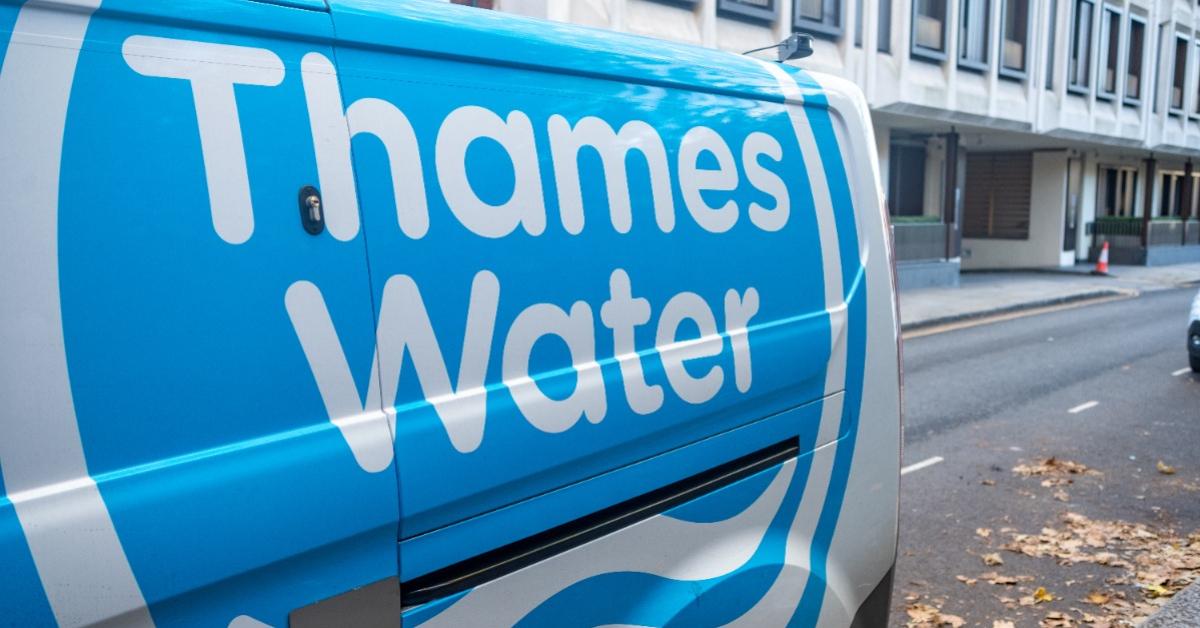
Recent news reports mention the possible bankruptcy of the privately owned company Thames Water (TW) in the United Kingdom, with a history of very high debt repayments, high dividend payouts to shareholders, mismanagement, and underinvestment of capital spending. TW supplies water and wastewater services to the southeast of England, including London.
The problem for TW is that almost half of their debt is floating rate, in which the interest rate paid increases or decreases with the rate of inflation. The UK’s higher inflation in recent years has impacted TW’s amount of loan repayment. TW was originally owned and operated by the British government and was privatized in 1989.
Some say TW’s woes were caused by the privatization when facts state otherwise. Privatization by itself did not cause TW’s current woes. Looking back in history to the privatization of state industries in the UK and the freedom of choice made by TW’s past and current owners will give insight to TW’s situation.
UK State Privatization History
The 1998 book written by Daniel Yergin and Joseph Stanislaw entitled The Commanding Heights: The Battle for the World Economy describes the efforts by British prime minister Margaret Thatcher’s government in the 1980s to privatize almost all state industries. British Aerospace, British Airways, British Gas, British Petroleum, British Rail, British Steel, British Telecommunications, airports, ports, public housing, TW, and a myriad of other industries were evaluated, valued, repaired, and sold on the open market.
The concept of state-owned industries being privatized en masse had never been attempted in history. The name for this mass privatization was “A New Style of Government.” PM Thatcher wanted a state in which people own houses and shares and have a stake in society, in which they have wealth to pass on to future generations.
UK Labour politicians promoted state-owned industries before and after World War II as an altruistic undertaking. The reality over several decades of government ownership was that state-owned industries became an undertaking. The Thatcherites, in practice, believed that the government was not going to be any better in figuring out the future than private business. The Thatcherites did not believe in government knowledge. Also, these state-owned industries had a record of being inflexible in the face of change.
State companies proved in practice to be highly inefficient, inflexible, and poorly performing employers, politically pressured to expand employment beyond the needs of the company, insulated from marketplace competition, and piled up huge losses for which the taxpayer paid the cost. These companies were not able to resist wage pressure from public-sector unions, which generated inflation.
Business decisions ran the risk of becoming politically driven, not by the interests of the company but by the desires of the politicians in power, whether it was new investments in equipment or plant locations. The UK Labour politicians of state-owned industries disliked the discipline of the market. Government ownership meant the products and outputs were not adapted to the free market, and the needs and desires of the consumer—the buyer—did not count for much.
Privatization became a cause for the Thatcherites. Expanded ownership in private property would give people a vested interest in changing the nation’s political culture. This would decisively limit the role of the state. Privatization would make the companies more efficient and deliver more value to consumers. The state’s share of gross national product would be reduced.
The state-owned water system was privatized in the form of regional water companies. TW was one of them. After privatization, employment was reduced in many companies, service quality improved, and operations became more efficient.
The privatization of state-owned industries did not yield perfect results. Some problems with higher unemployment occurred from many employees being laid off from formerly state-owned industries, and government regulation changed. However, one of the positive changes from state responsibility to individual responsibility was that initiative, incentives, and wealth generation were rewarded.
The privatization program carried out was much bigger than anyone expected at the start, and it pushed back the frontiers of the state. Looking back in time shows that getting the state out of owning and managing specific industries and putting the ownership of these industries into the hands of people in the free market yielded positive results.
By 1992, about two-thirds of state-owned industries moved into the private sector. Approximately forty-six major businesses with about nine hundred thousand employees were privatized. The government treasury received over $30 billion from industry sales. A drain on the treasury instead became a major source of tax revenue. Roughly nine million adults, or 20 percent of the UK population, were shareholders even when the number of shares owned was small. The number of days lost to union strikes was greatly reduced from 1979.
Thames Water Situation
The Australian bank Macquarie acquired ownership of TW in 2006. It was widely criticized for its stewardship of the water company between 2006 and 2017. Macquarie has faced accusations of asset stripping and ripping off the taxpayer by not paying corporation taxes. It is estimated that Macquarie left TW with an extra £2.2 billion ($2.8 billion) in loans, and £2.7 billion ($3.5 billion) was taken out in dividends, while the water company’s debts rose sharply from £3.4 billion ($4.5 billion) to £10.8 billion ($14.1 billion) under Macquarie’s ownership.
In March 2017, Macquarie Group sold its remaining stake in TW’s holding company to a consortium of pension funds and sovereign wealth funds, with the largest shareholder being the Ontario Municipal Employees Retirement System.
TW’s prior owners made these business decisions that are now impacting their current owners. Good decisions yield good results. Bad decisions yield bad results. This natural law applies to private companies, governments, individuals, and families. TW’s owners have the choice of either accepting responsibility for their decisions or blaming someone else for their bad choices. Privatization did not cause TW’s problems. One hopes TW’s woes are washed away soon.


